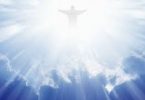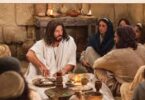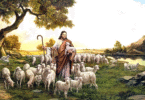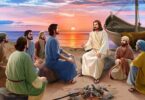21st Sunday of Ordinary Time (Year B)
Scripture reading: Jos. 24:1-2,15-18; Ps. 33:2-3, 16-23; Eph. 5:21-32; Jn. 6:60-69
Last week, the news headlines were dominated by horrifying stories from Afghanistan. The Taliban took over Afghanistan from the ruling government. The images from Afghanistan disturb us. Thousands of people wanting to get out of the country to save their lives. A young footballer succumbed to death after failing to get into the plane. The people of Afghanistan are forced to make choices in the midst of fear and anxiety here and now. I saw a heart-wrenching clip on the television yesterday from Afghanistan; a young mother surrendered her baby girl to American soldiers at Kabul Airport, knowing that she may not see her infant again. She made a choice to surrender her instead of letting her die at the hands of extremists. The decision was quick but it had to be taken in that situation.
Life is all about choices; what we are today is the choice that we made yesterday. What choices we make today will decide our tomorrow. We need to understand that we are solely responsible for our choices and we have to accept the consequences of every choice that we make. It is also applicable to our life of faith. Today’s liturgy invites us to make a choice for God. It is said in the scriptures, “When we intentionally choose God over our desires, we position ourselves to live a life without great regrets.” (2 Sam 11:2) We have many choices but have I made a choice for God today, which is to serve Him.
The first reading from the book of Joshua tells us that Joshua invited the people to make a choice for God. He made the choice to serve God over every other thing. He reminded them of God’s faithfulness from the time of their ancestors. He challenged them to choose which God they wanted to serve. It is interesting to note, Joshua called all the leaders of the twelve tribes at Shechem.
The historical background of the place helps us to understand that it was a prominent place in the history of Israel. It was the place where God made a promise to Abraham about the promise land. Abraham built an altar and offered a sacrifice to God (Gen. 12:1-7). After returning from Laban, Jacob bought the piece of land and asked Rachael and her kinsmen to bury their ancestral gods. He told them to make a choice f0r God for whom he erected the altar (Gen. 33:18-20). According to Joseph’s will, his bones were brought from Egypt and buried in the same plot of land (Gen. 50:24). Thus, Shechem was the right place to remind them about God’s faithfulness. The People of Israel made a choice to serve God (Jos. 24:18).
We find a similar situation in the Gospel today. A little flashback of the Gospel will help us to situate ourselves in the right context. We have been reflecting on the Eucharistic discourse from the Gospel of John. The teaching on the Bread of Life began with the multiplication of loaves. Jesus made a unique claim of himself as the Bread of Life. His claim to eat his body and drink his blood led to murmurs and objections among his large followers. They were unable to accept his teaching. Some of his disciples did not understand what he said. Some complaint and expressed their disbelief. Some of them decided to quit. Jesus had put before them a challenging situation: accept him or reject him.
Just like in the first reading, where Joshua asks the 12 tribes, Jesus too turned to his twelve disciples asking whether they are not rejecting him like the others; St. Peter, being the representative of twelve, responded by saying, “Lord, to whom shall we go? You have the words of eternal life.” He was not a learned man but God had given him the grace to choose Jesus as the Bread of Life.
We stand today at Shechem or in front of Jesus in this holy Eucharist. The Holy Eucharist reminds us of what Jesus has done for us on the cross. It reminds us that Jesus has won victory for us. It reminds us that God is still faithful in his promises. Every Eucharistic celebration places before us a challenge to make the radical choice of God. The situation is such that we cannot procrastinate like the state of Afghanistan. We need to be like Joshua and St. Peter who made radical choices for God and Jesus. Therefore, they positioned their lives without any regret. What about us?






